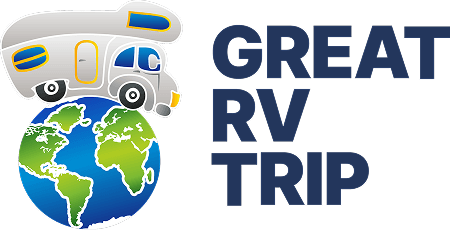Motorhome travel
Motorhome travel
The discount is valid for bookings over 10 days
Motorhome rental
Leave your contacts so we can contact you
Route with Full Travel Support
We will create a personalized route tailored specifically to your wishes and interests. You’ll receive a detailed travel guide with descriptions of must-see attractions, up-to-date prices, and helpful tips. We’ll book your campsites in advance and mark convenient stopovers, so everything is planned for you.
Prefer spontaneous travel and making decisions on the go? We’ve got you covered with full support along the way. We’ll be in touch with you 24/7 to:
Find and book a great restaurant or tour along the route;
Help locate nearby service points, like water disposal or refueling stations;
Quickly adjust your route if you’re in the mood for new experiences.
With us, your journey will be easy, well-organized, and truly free.
Prefer spontaneous travel and making decisions on the go? We’ve got you covered with full support along the way. We’ll be in touch with you 24/7 to:
Find and book a great restaurant or tour along the route;
Help locate nearby service points, like water disposal or refueling stations;
Quickly adjust your route if you’re in the mood for new experiences.
With us, your journey will be easy, well-organized, and truly free.
What is camping?
In English, "camping" literally means an open-air camp. In a broader sense, it is a parking lot for tourists or just a stopover during a trip.
There are two types of campsites:
- "Wild" — unregistered, self-organized, and often free. It is not welcome or prohibited in many European countries. You can only camp in special places. The authorities attribute the ban to concern for wildlife and the risk of camping on private property.
- Officially registered, equipped — we’ll talk about it in the article. It is usually located in places with beautiful views, at a short distance from highways. Such a campsite provides various services: water, electricity, a place for a motorhome or tent, food, Internet.
The choice of campsites, the level of service in them, and the work system may vary greatly from country to country.
Camping sites are very popular due to the fact that it is much cheaper to stay in them during a trip than in hotels. In addition, this is a vacation in nature, where you are not limited to the territory of a hotel room.
For those who appreciate a comfortable, expensive vacation, there are glamping services — a full open-air hotel service.
For those who appreciate a comfortable, expensive vacation, there are glamping services — a full open-air hotel service.
How to find camping in Europe
Before looking for specific campsites, it is useful to draw up a route on a map and identify places where it would be convenient to relax or spend the night.
Where to look
There are several ways to find parking spots:
1. Numerous aggregator sites. For example, camping.info or pitchup.com — these are the sites with the most convenient navigation for finding paid options. On ioverlander.com and park4night.com you can find free parking — specify the country, dates and type of accommodation, as well as the number of people in a special form. If there are children, they may be asked to indicate their age. In some aggregators, as in camping.info you can filter the results by the number of stars (like hotels), the set of services, location, and other parameters.
2. Search by POI (points of interest) in the GPS navigator. Download the coordinates of the campsites through a special website, for example, archiescampings.eu. Then import it into Google Earth and see the results on the map.
3. Search on Google maps. Open the desired area, type "camping" in the search bar, filter by rating and opening hours if desired. The "Search in this area" button appears at the top in the middle of the screen, click and then the results will be marked on the map.
4. Follow the signs on the road. If you turn the trip into an adventure, rather than planning stops in advance. This method is not the easiest — it will not always be possible to find free places the first time.
1. Numerous aggregator sites. For example, camping.info or pitchup.com — these are the sites with the most convenient navigation for finding paid options. On ioverlander.com and park4night.com you can find free parking — specify the country, dates and type of accommodation, as well as the number of people in a special form. If there are children, they may be asked to indicate their age. In some aggregators, as in camping.info you can filter the results by the number of stars (like hotels), the set of services, location, and other parameters.
2. Search by POI (points of interest) in the GPS navigator. Download the coordinates of the campsites through a special website, for example, archiescampings.eu. Then import it into Google Earth and see the results on the map.
3. Search on Google maps. Open the desired area, type "camping" in the search bar, filter by rating and opening hours if desired. The "Search in this area" button appears at the top in the middle of the screen, click and then the results will be marked on the map.
4. Follow the signs on the road. If you turn the trip into an adventure, rather than planning stops in advance. This method is not the easiest — it will not always be possible to find free places the first time.

Example of the aggregator website interface pitchup.com
What to consider when choosing a vacation destination
It all depends on what you need during the trip: to wash your clothes, go online, wash, and so on. Read about the services provided by each of your chosen campgrounds. For example, some don’t have the Internet, but they have their own dining room; others don’t have dining rooms, but they have washing machines; and still others can find everything you need right away.
It is important to consider the location of the campsite. It can be a place closer to urban or natural attractions or the city center. In this case, prices will be higher, there will be more visitors and places will be bought up there faster. If you prefer a relaxing holiday in a quiet environment, then camping in the suburbs or in nature is more suitable, for example, near reservoirs, forests, mountains. Such options are usually cheaper and easier to book.
Travelers rate campsites in the same way as hotels — by the number of stars. Pay attention to the rating and reviews.
It is important to consider the location of the campsite. It can be a place closer to urban or natural attractions or the city center. In this case, prices will be higher, there will be more visitors and places will be bought up there faster. If you prefer a relaxing holiday in a quiet environment, then camping in the suburbs or in nature is more suitable, for example, near reservoirs, forests, mountains. Such options are usually cheaper and easier to book.
Travelers rate campsites in the same way as hotels — by the number of stars. Pay attention to the rating and reviews.
Is it necessary to book a campsite in advance
If you’re traveling with a tent, you don’t need to. There are always places.
If you are traveling by caravan, with a trailer, or if you want to rent a bungalow, tent, or tent at a campsite, it is better to book in advance. Especially if you are planning a trip for July — August. This is the hottest season, it’s best to book as early as possible. Important comment: in high season, not all campsites will be able to stay for less than a week. This point should be clarified in advance.
Not all campsites make reservations in advance. Some people ask you to call 1−2 days before arrival.
You can book places by phone, mail, and online on the official camping website or aggregator site. It is usually most convenient to book through an aggregator. However, only representatives can provide full and accurate information about the services.

What is included in the price — free and paid services
The stay is paid on site — upon check-in or before departure. The price usually includes:
- rent a tent, a cabin or a place for a camper, your tent;
- payment for each adult and for each child. Cheaper than for an adult, and some age categories may be free.;
- for electricity. Sometimes it is paid separately, sometimes it is included in the price of the reservation. If you are not going to use it, then you do not need to pay.;
- for the Internet. Optional if you do not plan to use it. Free Wi-Fi is sometimes available on site.;
- for pets;
- tourist tax. It is often included in the price, sometimes it is taken out separately.
There is a toilet and a shower everywhere. The toilet is free, and in some countries you will have to buy special tokens or pay separately to wash. If there is a kitchen on site, then sometimes you will need to pay extra for its use.
What to take with you
Here is a sample list for travelers with a tent:
- tent;
- sleeping bag;
- dishes;
- gas burner if there is no kitchen on the campsite.;
- flashlight, street lamp, battery pack;
- mini fridge or thermos bag;
- folding chairs and a table if you want to eat separately, rather than in the common dining area.;
- an extension cord for charging gadgets. If it is not available, then the devices can be charged in the sanitary unit or at the reception.;
- washing powder;
- adapters. Different types of sockets are used in different countries.;
- insect protection. Both sprays or creams, and spirals.
If you are traveling by camper, you will already have most of your belongings.
What exactly to take with you depends on how you get to the country where the campsite is located. You can take bigger things in the car, and for air travel you will have to save space and lighten your luggage as much as possible.
What exactly to take with you depends on how you get to the country where the campsite is located. You can take bigger things in the car, and for air travel you will have to save space and lighten your luggage as much as possible.

Living conditions in European campgrounds
What do parking lots look like?
It’s different everywhere. Places can be marked out the same way for both tents and campers. Alternatively, campers and trailers can stand separately from tents with cars. And somewhere there is even a separate area for cyclists.
There are booklets with a map of the territory at the reception. It shows in detail how the places are marked.
There are booklets with a map of the territory at the reception. It shows in detail how the places are marked.
Rules of accommodation
- Don't make any noise. Each campsite has a clock starting at 22, during which it is forbidden to disturb other guests with music, engine noise and other loud activities. The lights are turned off at night because everyone is asleep.
- Clean up after yourself. Vacationers wash their own dishes, throw away disposable ones, wipe tables and sinks, and drain the remaining water in the shower. The cleanliness of the territory depends mainly on the guests.
- Save water and electricity. This is more of a recommendation. That's the way it's done in European culture. This is also due to the fact that these services may be paid. In campsites, Europeans do not pour water all the time when brushing their teeth and taking a shower, washing dishes in basins, and washing machines on the territory are often large so that two people can wash all their belongings at one time.
- Respect the personal space of others. Even if there is no clear division of places on the territory, it is not customary to walk around the space around other people's tents or campers in order to shorten the road. It is also not customary to put your tent close to others.
Washing and showering
Most parking lots with a rating above three stars have washing machines. They are paid. Tourists use their own powder. There are washing boards and tumble dryers. There are only sinks in parking lots with two or one stars. It can be washed manually if necessary.
They wash in the showers. Somewhere for free, somewhere for a fee. In some campsites, water is supplied in portions of 30 seconds. To get another portion, press the button.
The laundry area and bathrooms are usually very clean. There is usually toilet paper, but not always. It’s better to have it with you just in case.
They wash in the showers. Somewhere for free, somewhere for a fee. In some campsites, water is supplied in portions of 30 seconds. To get another portion, press the button.
The laundry area and bathrooms are usually very clean. There is usually toilet paper, but not always. It’s better to have it with you just in case.
Where to cook food
Many campsites have barbecues that all guests can use.
Large camps often have a full-fledged communal kitchen, but you will most likely have to pay for cooking there. We recommend having your own dishes. You can wash dishes and groceries for free.
If your campsite does not have a kitchen, you will need a gas burner. However, remember that if you are traveling by plane, you will not be allowed on board with gas. You can buy it on the spot.
Sometimes there is a cafe on site. In this case, you don’t have to cook it yourself.
Large camps often have a full-fledged communal kitchen, but you will most likely have to pay for cooking there. We recommend having your own dishes. You can wash dishes and groceries for free.
If your campsite does not have a kitchen, you will need a gas burner. However, remember that if you are traveling by plane, you will not be allowed on board with gas. You can buy it on the spot.
Sometimes there is a cafe on site. In this case, you don’t have to cook it yourself.
Pets
If you live in a tent, it is allowed to move in with dogs, provided that they do not interfere with other campers.
When checking into the house, this point needs to be clarified, as it is not allowed everywhere.
Accommodation with pets is always paid.
When checking into the house, this point needs to be clarified, as it is not allowed everywhere.
Accommodation with pets is always paid.
The Internet
Wi-Fi is available almost everywhere. Somewhere it is free, somewhere the connection costs about 2 € per day. It often does not cover the entire territory — sometimes it is only available at the reception or at the bar. The speed depends on the workload, but it is unlikely to be high. It’s enough to watch the news or browse social media, but it’s better not to count on watching a movie.
Safety
The territory is necessarily guarded, so you shouldn’t worry too much. As in hotels, valuables are stored in lockers or safes.
You shouldn’t worry about wild animals and dangerous insects either. It is enough to close the tent or camper at night and when you leave, as well as store shoes inside and inspect them before putting them on if they are outside. The territory is regularly checked by inspectors.
You shouldn’t worry about wild animals and dangerous insects either. It is enough to close the tent or camper at night and when you leave, as well as store shoes inside and inspect them before putting them on if they are outside. The territory is regularly checked by inspectors.
Electricity
At the campsite, you can stay in an area where electricity is not supplied. In this case, you will not need to pay for it. If you need to charge, for example, a phone, then for a fee.
In all other cases, electricity is chargeable and distributed through a panel designed for several pitches (platforms or places). To connect to it, you will need cables 25−30 m long, extension cords and adapters. It will also be possible to use all the sockets available in the camp.
It is useful to bring flashlights and a large lamp if you live in a tent. There is lighting on the territory, but it is turned off at night so as not to interfere with sleep.
In all other cases, electricity is chargeable and distributed through a panel designed for several pitches (platforms or places). To connect to it, you will need cables 25−30 m long, extension cords and adapters. It will also be possible to use all the sockets available in the camp.
It is useful to bring flashlights and a large lamp if you live in a tent. There is lighting on the territory, but it is turned off at night so as not to interfere with sleep.
Entertainments
Usually there are children’s activities in the camps. At least there is a playground. And if the campsite has more than 2 stars, then there may be a swimming pool, a children’s room, attractions, a trampoline, a mini-water park, children’s pedal cars or even a mini zoo.
For adults, there are pools, beaches, and playgrounds on the territory. They rent rackets, balls, catamarans and boats; they conduct excursions and parties.
Some activities may be included in the price of your stay, while others are available for an additional fee.
For adults, there are pools, beaches, and playgrounds on the territory. They rent rackets, balls, catamarans and boats; they conduct excursions and parties.
Some activities may be included in the price of your stay, while others are available for an additional fee.

The cost of camping in Europe
The price per night depends heavily on the season. The most expensive is July-August, which is the most popular vacation time. Proximity to water, attractions, the city or its center, the number of guests, the availability of amenities and entertainment also affect.
The cost also varies according to your own wishes. When you check in, fill out a card indicating the number of people, nights at the campsite, whether you have children and pets with you, whether you need Internet, electricity, shower, kitchen, and so on. The invoice is issued based on this questionnaire.
Payment is made upon arrival, upon check-in, or on the last day. There is no prepayment. Keep this in mind if you need to show your reservation at the embassy. In this case, it is necessary to negotiate with the campsite so that you are allowed to deposit some of the money and book a place if, according to the rules of the camp, reservations are not provided in advance.
The cost also varies according to your own wishes. When you check in, fill out a card indicating the number of people, nights at the campsite, whether you have children and pets with you, whether you need Internet, electricity, shower, kitchen, and so on. The invoice is issued based on this questionnaire.
Payment is made upon arrival, upon check-in, or on the last day. There is no prepayment. Keep this in mind if you need to show your reservation at the embassy. In this case, it is necessary to negotiate with the campsite so that you are allowed to deposit some of the money and book a place if, according to the rules of the camp, reservations are not provided in advance.
On average, it costs 20−30 euros per night for two and 35−45 euros for a family of four.
If you plan to travel a lot during the high season, you can purchase a Camping Key Europe ID card. It is paid at a discount of up to 20% at many campsites in a number of European countries.
If you plan to travel a lot during the high season, you can purchase a Camping Key Europe ID card. It is paid at a discount of up to 20% at many campsites in a number of European countries.
Not all campgrounds accept credit cards. This point should be clarified before checking in.
The campgrounds in Italy, Finland, Austria, Croatia, Germany and Poland are the most popular among travelers. We are planning to write an article with an overview of camping sites in these countries. Subscribe to our blog so you don’t miss it.
What else are we writing about
E-mail: info@greatrvtrip.com


Contact us. We will answer the questions, help with the choice
We will answer your questions and help you choose
Contact us
© GREAT RV TRIP, 2017–2026
Travel agency on motorhomes. Let's go on an adventure!
Privacy Policy
Cookies Policy
Terms
Travel agency on motorhomes. Let's go on an adventure!
Privacy Policy
Cookies Policy
Terms
Manage cookies
We use cookies and similar technologies to improve your browsing experience, analyze site traffic and serve targeted advertisements.
For more details, read our Privacy & Data Protection Policy and Cookies Policy.
We use cookies and similar technologies to improve your browsing experience, analyze site traffic and serve targeted advertisements.
For more details, read our Privacy & Data Protection Policy and Cookies Policy.












